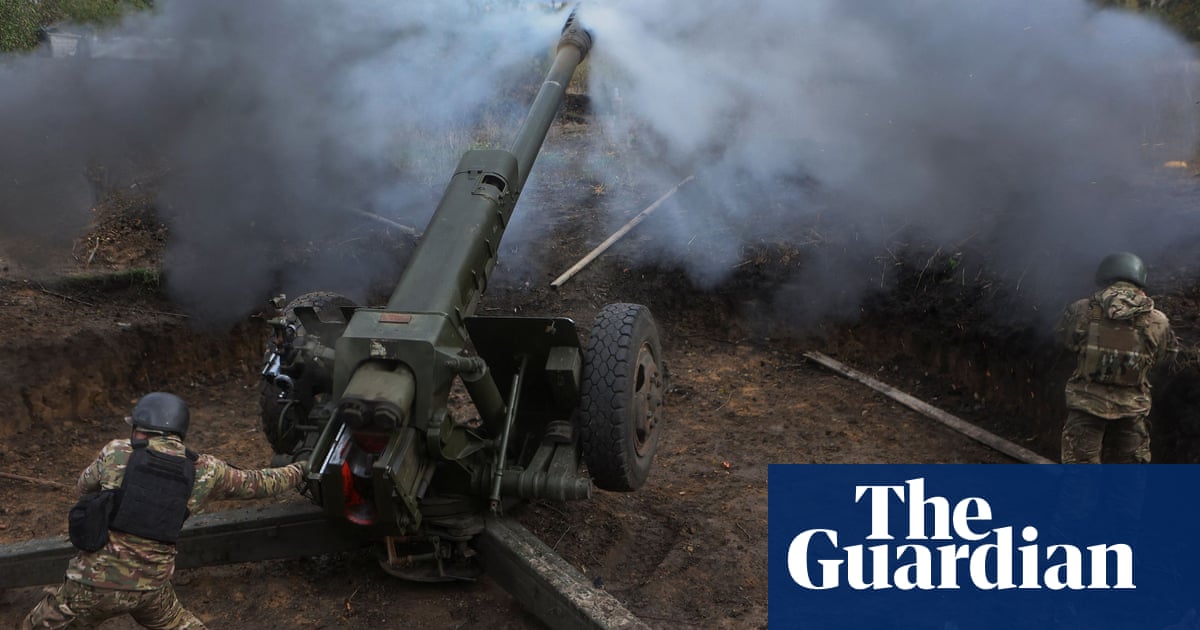The Russian president, Vladimir Putin, has appeared to concede the severity of the Kremlin’s recent military reversals in Ukraine, insisting Russia would “stabilise” the situation in four Ukrainian regions it illegally claimed as its own territory last week.
Russia has suffered significant losses in two of the four regions since Friday, when Putin signed treaties to incorporate them into Russia by force, with Russian officials saying their forces were “regrouping”.
With Ukraine pushing its advance in the east and south, Russian troops have been retreating under pressure on both fronts, confronted by fast moving and agile Ukrainian forces supplied with advanced western-supplied artillery systems.

Putin appears to admit severe Russian losses in Ukraine
Ukrainian army making ‘fast and powerful progress’ in south, says Volodymyr Zelenskiy
Military experts say Russia is at its weakest point, partly because of its decision not to mobilise earlier and partly because of massive losses of troops and equipment.
About 15,000 of Russia’s best-trained troops are struggling to fight off Ukrainians on the western bank of occupied Kherson, despite movements of Russian troops from the eastern front to the south, which has thinned Russian forces elsewhere.
According to Jack Watling, a senior analyst at the Royal United Services Institute, Russian troops around Kherson have retreated to their second line of defence to shorten their frontline.
“There’s no evidence of surrender or collapse [of Russian forces] … like we saw in Kharkiv region,” said Watling, noting the political importance for Russia of holding on to Kherson city, the only regional centre it has managed to acquire since February.
But if Ukraine’s forces manage to break through Russia’s second line of defence, they will be able to cut the Russian supply lines with a wider range of cheaper artillery and trap them on the western bank of Kherson, he added.
“At the moment, the bridges are being hit by Himars [rockets], which are scarce and very expensive … [if they advance further] they can afford to open up against more incidental targets,” said Watling of the bridges supplying Russian forces on Kherson’s west bank.
O’Brien doubted Russia had enough quality missiles to alter the situation behind the frontlines to affect the battlefield.
“It’s more of a question of, can they just hold on and hope that they can get a trained and re-equipped force back in the spring, but even then there’s a question about whether they can do that,” said O’Brien. He said Russia would need to produce more equipment and properly train troops but its system of mobilisation appeared “chaotic”.







 .
. 


